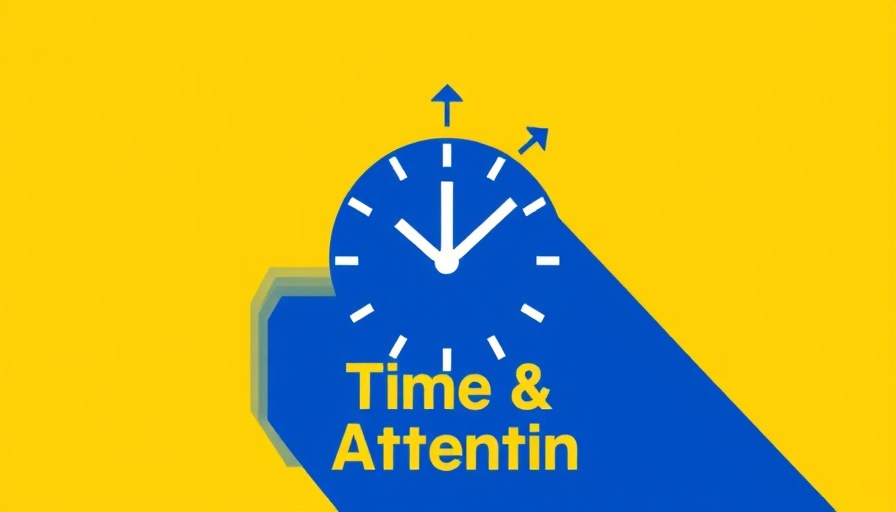
Unlocking Change Through Intentional Choices
In a world where executives and entrepreneurs often juggle overwhelming responsibilities, it's easy to fall into a rut, thinking that change requires time; however, Myron Golden’s insights powerfully remind us that change is driven by decision. With a focus on five transformative habits, individuals can pivot their lives dramatically within just a week. This revelation is particularly pertinent for those in high-stress environments, signaling that immediate action, rather than procrastination, holds the key to effective productivity.
In '5 Habits That Changed My Life In 1 Week', Myron Golden shares pivotal insights on transformative daily practices, prompting us to delve deeper into their implications for personal and professional growth.
Five Life-Changing Habits
The cornerstone of Golden's life-changing journey lies in five specific habits that tick multiple boxes of personal and professional improvement.
- 1. Early Rising with Intention: Golden emphasizes the significance of beginning each day proactively. By rising before dawn with a clear plan and purpose, individuals can take ownership of their morning, paving the way for a productive day ahead. An early start allows space for meditation, prayer, or simply quiet reflection—keys to enhancing mental clarity and reducing stress levels.
- 2. Daily Affirmations and Writing Goals: Writing out big goals daily, particularly those that invoke a sense of fear or unqualification, ignites intention and aligns personal ambitions. This practice enhances self-belief and reinforces commitment, ensuring that every step taken towards these goals carries purpose and clarity.
- 3. Positive Declarations: By using language that affirms positive outcomes and reinforces beliefs, individuals can shape their reality. This habit resonates deeply, especially in demanding business environments where self-talk can dictate motivation and performance levels. Individuals are encouraged to voice aspirations out loud, which can spur real changes in mindset and behavior.
- 4. Disciplined Consumption: In today’s digital age, what we consume mentally and emotionally significantly influences our behavior and mindset. Golden’s advice to limit exposure to negative influences, while instead engaging with positive and constructive content, is particularly relevant for maintaining focus and driving productivity within high-pressure roles.
- 5. Radical Execution: Action, according to Golden, is the language of faith. He advocates taking bold steps towards goals each day, even when motivation wavers. In a fast-paced world, this execution not only reflects commitment but also fosters resilience and adaptability.
The Power of Choices and Alignment
Golden elucidates that it isn't merely about the actions we take, but rather the deeper decisions that inform those actions. When individuals align their decisions with their core intentions and values, acceleration occurs. This alignment compresses time, allowing remarkable transformations to unfold in days rather than years. In high-stress careers where time is of the essence, recognizing how our habits serve or hinder us becomes crucial. The perception that we lack time often masks our hesitance to commit to change.
Habitual Momentum for Executives and Entrepreneurs
As busy professionals navigate their days, implementing these five habits can instill a sense of accountability and intentionality amidst chaos. The journey towards success can be overwhelming, yet these habits empower individuals to gain momentum, steer their processes effectively, and transform challenges into opportunities. Constructing these habits isn’t just about improved productivity; it actively shapes character and subsequent legacy.
The Transformative Impact of Daily Habits
Golden's assertion that daily habits are prophetic speaks volumes. Each decision shapes an individual’s path, revealing the importance of intentionality. By understanding that habits are contracts determining the trajectory of one’s future, professionals have the opportunity to either limit their potential or elevate their legacy. This principle can serve as motivation to embrace constructive changes, just as much as it encourages an evaluation of detrimental habits.
Conclusion: Taking Action Now
In moments of reflection, executives and entrepreneurs must ask themselves: What changes am I willing to implement today? Change isn’t a distant goal; it’s a present decision that compounds over time. The takeaway from Golden's insights is both empowering and actionable: start today, choose discipline over distraction, and unlock your potential through the profound impact of intentional habits. The results? A life aligned with purpose, productivity, and fulfillment, both at work and personally.
 Add Row
Add Row  Add
Add 




Write A Comment